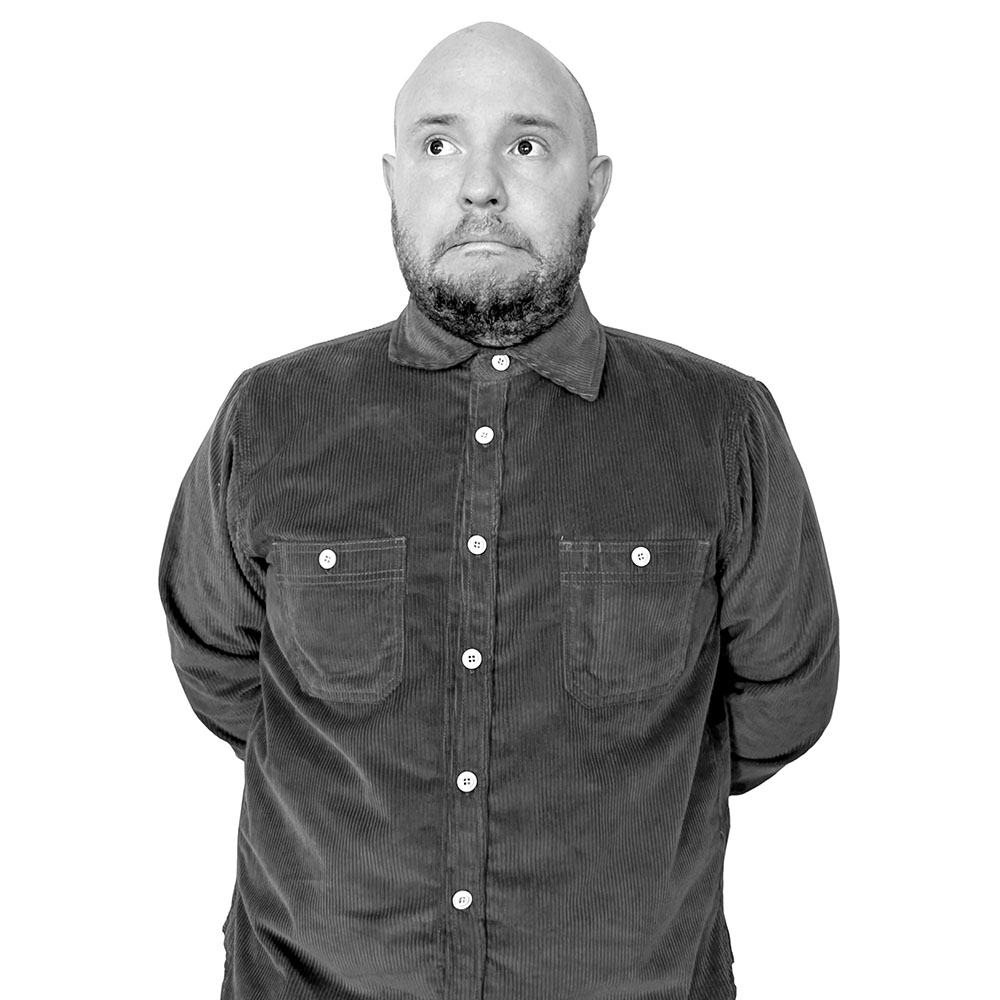Iain's Advice (Issue 4)First-world problems are still problems, and Mr Trickett is here to help!
Iain is the founder and owner of Accrington-based brand, TRiCKETT England. He’s the best advice sharer we’ve ever known. We spend a brief moment each day in appreciation of having him in our mag/lives.
Question
Dear Iain
Despite really enjoying the company of friends old and new, I find myself getting very anxious when planning any kind of social meet-up. I worry I won’t be interesting/ entertaining enough and fret about the logistics of travel. I even feel a sense of relief when someone has to cancel, and I can just stay home instead.
Anonymous, Gwynedd, Wales
Iain replies…
You’ve touched on something that many people experience at some point in their life, though it often feels like you are the only person like this. Such as my friend Nina who eats mashed potato sandwiches… First off, know this: you’re not alone, and there’s nothing ‘wrong’ with you. Let’s unpack what might be happening here and explore how you can make socialising feel less daunting and more joyful.
It’s clear you genuinely value time with friends, both old and new. However, the anxiety surrounding social meet-ups seems to overshadow the pleasure you derive from those connections. Psychologically, this tug-of-war could stem from social anxiety or perfectionistic tendencies, both of which are incredibly common. From a cognitive-behavioural perspective, this anxiety could be driven by unhelpful thoughts like: What if I’m boring and people judge me? What if things go wrong and I’m embarrassing?
In reality, most social interactions are far less intense than we imagine them to be. Cognitive distortions like catastrophising (Everything will go wrong!) or mind-reading (They’ll think I’m dull!) can fuel the cycle of anxiety and that isn’t good. Especially when you should be deciding whether you want a biryani or if you should choose a starter.
Worrying about travel and logistics is a classic example of the brain seeking certainty. Research into decision fatigue and stress psychology shows that too many choices or ambiguous plans can make even small tasks feel overwhelming. Social meet-ups often involve variables like timing, transport, and even clothing choices, which can trigger anticipatory anxiety.
Your sense of relief when plans get cancelled is also very normal. It ties into the concept of decision relief, where the removal of a potentially anxiety-inducing event provides comfort. However, this relief can reinforce avoidance, which may keep you stuck in the cycle.
So here are a few tips I like to use when I’m feeling a little anxious about meeting up with people who I haven’t seen for a while, or if I’m a bit concerned about what we’ll talk about.
Your worry about not being entertaining enough suggests you might be placing too much pressure on yourself to ‘perform’. But people connect most deeply when they feel heard and valued, not dazzled by your personality or how expensive your watch is.
Social psychologist Carl Rogers emphasised the power of active listening and genuine interest in others. Instead of worrying about being interesting, focus on being interested. Ask open-ended questions like, What’s been exciting in your life lately? This takes the pressure off you and shifts the spotlight.
Planning ahead can soothe logistical anxiety but be mindful of over-preparing. A simple strategy I like to use is to plan just one step ahead. Decide on the essentials (time, location, transport) without agonising over every detail. Also, be open to change. Some of the best nights out I’ve ever had were ones that weren’t planned.
Psychologist Timothy Pychyl, an expert in procrastination, suggests that anxiety often stems from a mismatch between expectation and reality. By breaking tasks into smaller, manageable chunks, you create a sense of control.
Build small comforts into your socialising to reduce anxiety. For instance, try picking venues that feel comfortably familiar or are easy to reach. Set a time limit for how long you’ll stay, that way you won’t feel trapped. Arrange smaller gatherings, one-on-one or in a trio, where the dynamic feels less intimidating.
Also, there is no problem with gradually introducing yourself into social situations. While going big is great in some situations, if you feel anxious about big social interactions, make them smaller and safer. Start with low-pressure gatherings, like coffee with a close friend, and slowly work up to larger gatherings. By facing social situations in increments, your brain learns there’s no real danger, and the anxiety diminishes.
It’s also worth mentioning Kristin Neff’s work on self-compassion. Remind yourself that struggling with social anxiety doesn’t make you weak or flawed. Treat yourself as you would a close friend: with kindness and understanding. You’re navigating something tricky, which takes courage.
So, be gentle with yourself, celebrate the small victories, and trust that you’re enough, exactly as you are. Friends don’t gather because you’re perfect; they gather because they enjoy you, your company and whatever your perceived flaws are. And that’s a beautiful thing.
Words by Iain Trickett
First published in Issue 4 of BOTHER magazine February 2025
